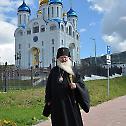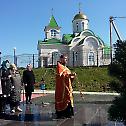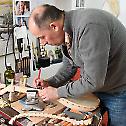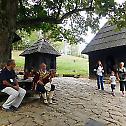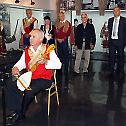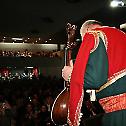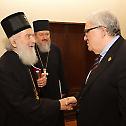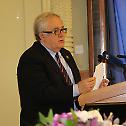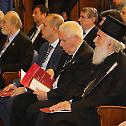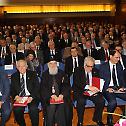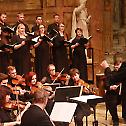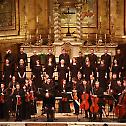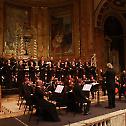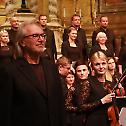Culture
“Come To Us, To Sakhalin!”
22. December 2018 - 2:14Archbishop Tikhon (Dorovskikh) of Yuzhno-Sakhalinsk and Kuril Islands, a native of the city of Voronezh, has served in the grace-filled Sakhalin region with its harsh climate for fifteen years: first as a priest, and since 2011 as the ruling hierarch. We are talking with Archbishop Tikhon about the life of residents of Sakhalin Island and the Kuril Islands, whether Orthodox or non-religious; about the issues, challenges and joyful events of the diocese which has celebrated its twenty-fifth anniversary this year; and the region’s spiritual make-up. But, first of all, we asked His Eminence to speak about his family as all three brothers in that family became monks and chose to serve the Church.
Singing to the Accompaniment of the Gusle
6. December 2018 - 10:06As stated in the official UNESCO’s report, Singing to the Accompaniment of the Gusle was inscribed on the Representative List of the Intangible Cultural Heritage of Humanity in 2018.
During the thirteenth session of the Intergovernmental Committee for the Safeguarding of the Intangible Cultural Heritage that took place at Port Louis, Republic of Mauritius, from Monday 26 November to Saturday 1 December 2018 at the Swami Vivekananda International Convention Centre (SVICC), it was decided that Singing to the Accompaniment of the Gusle will enter UNESCO’s List of the Intangible Cultural Heritage of Humanity. Over the six days, the twenty-four States Members of the Committee, elected by the General Assembly of the 2003 Convention, have discussed a number of issues that are important for the safeguarding of living heritage around the world. On this occasion, the agenda of the meeting included the issue “Inscriptions on the Lists”, which led to the expansion of the List of the Intangible Cultural Heritage.
The Day of the Serbian Academy of Sciences and Arts
23. November 2018 - 10:42His Holiness Irinej,
The Serbian Academy of Sciences and Arts marked on 19th November 2018 its Day by introducing new correspondent members, by opening Audiovisual Archive and the Center for digitalization as well as a permanent exhibition of the collection of the Medal Cabinet of the SASA Archive.
Sacred Music in a Sacred Space: Avro Pärt Concert
20. November 2018 - 9:58The Arvo Pärt Project co-presented an incredible concert featuring the Estonian Orthodox composer’s music on Monday evening, November 12, 2018, in New York City. The Project partnered St. Vladimir’s Orthodox Theological Seminary with Sacred Music in a Sacred Space for the event.
A New Book from St. Herman Press
9. November 2018 - 17:12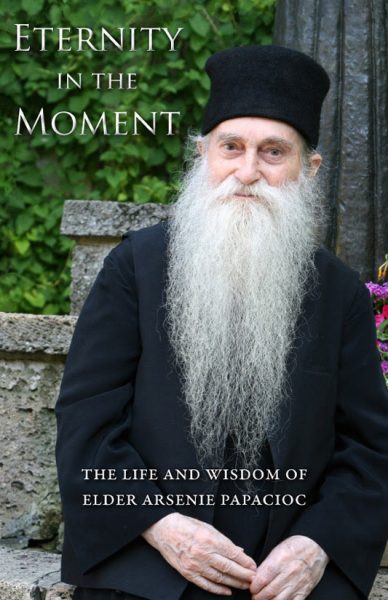 Elder Arsenie (Papacioc) of Romania (1914–2011) was a witness of the eternal truth of Christ, given by God to contemporary man. A man of deep prayer, he also possessed experiential knowledge of the ways of the world. Before going to the monastery, he had been a gifted athlete, a talented sculptor, a soldier, a mayor, and a prisoner of the Romanian Communist regime. Prison became a spiritual academy for him, and after his release he dedicated his life to God as a monastic. For the next six decades he would labor as a monk—in prison and out of prison. He became a beloved spiritual father, counseling the nuns of the Techirghiol Monastery and the multitude of faithful who flocked to his monastic cell. Drawing on his knowledge of the spiritual life and the workings of the world, he was able to guide people to a life in Christ, marked by activity, not philosophizing and speculation.
Elder Arsenie (Papacioc) of Romania (1914–2011) was a witness of the eternal truth of Christ, given by God to contemporary man. A man of deep prayer, he also possessed experiential knowledge of the ways of the world. Before going to the monastery, he had been a gifted athlete, a talented sculptor, a soldier, a mayor, and a prisoner of the Romanian Communist regime. Prison became a spiritual academy for him, and after his release he dedicated his life to God as a monastic. For the next six decades he would labor as a monk—in prison and out of prison. He became a beloved spiritual father, counseling the nuns of the Techirghiol Monastery and the multitude of faithful who flocked to his monastic cell. Drawing on his knowledge of the spiritual life and the workings of the world, he was able to guide people to a life in Christ, marked by activity, not philosophizing and speculation.
The Life of the Evangelist Luke
31. October 2018 - 10:53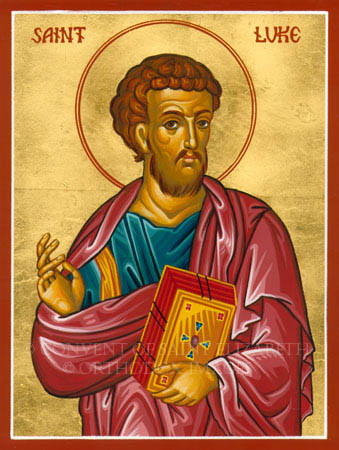 Luke, a physician of Antioch, was not unacquainted with Greek culture, as is shown by his writings. He was a companion of the Apostle Paul and followed him in all his journeys to foreign lands. Luke wrote the Gospel to which Paul himself refers when he says, And we have sent with him the brother, whose praise is in the Gospel throughout all the churches (II Cor. 8:18). And in his letter to the Colossians he says, Luke, the beloved physician, greets you (Col. 4:14). And to Timothy he says, Only Luke is with me (II Tim. 4:11).
Luke, a physician of Antioch, was not unacquainted with Greek culture, as is shown by his writings. He was a companion of the Apostle Paul and followed him in all his journeys to foreign lands. Luke wrote the Gospel to which Paul himself refers when he says, And we have sent with him the brother, whose praise is in the Gospel throughout all the churches (II Cor. 8:18). And in his letter to the Colossians he says, Luke, the beloved physician, greets you (Col. 4:14). And to Timothy he says, Only Luke is with me (II Tim. 4:11).
Luke wrote another excellent book entitled The Acts of the Apostles, a history which ends with Paul’s two-year stay in Rome, that is, in the fourth year of Nero’s reign. This leads us to believe that The Acts of the Apostles was written in Rome. The tale of the journey of Paul and Thecla, and every other fable, such as the baptism of the lion, should not be counted among the canonical Scriptures. For it is not possible that he who was inseparable from the Apostle should not have known of this act among all his other acts. Tertullian also mentions a certain elder in Asia at that time, a companion of the Apostle Paul, who, when it was proven in the presence of John that he was the author of this book, confessed that he had written it out of love for Paul. Some say that this is why Luke does not mention himself as the author. Whenever Paul says in his own Epistles, according to my Gospel (Rom. 2:16, etc.), it is clear that he means the Gospel written by Luke. But Luke learned the Gospel not only from the Apostle Paul, who was not with the Lord in the body at that time, but from the other Apostles as well. He himself clearly states this at the beginning of his work, saying, even as they were handed down to us by those who from the beginning were eyewitnesses. Therefore he wrote the Gospel as he had heard it. But he wrote The Acts based on what he himself had experienced. Luke’s relics were taken up and carried to Constantinople, together with the relics of the Apostle Andrew, in the twentieth year of the reign of Constantius.

